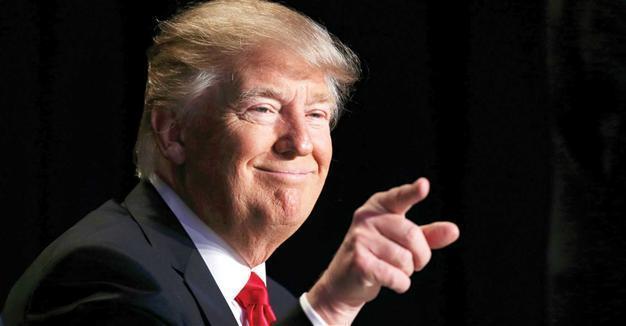Iran, US in Twitter wars amid escalating tension
TEHRAN/WASHINGTON
 Iran and the United States have engaged in a war over the 140-character social media platform of Twitter amid escalating tension between the two countries that began with an Iranian missile test launch over the weekend.
Iran and the United States have engaged in a war over the 140-character social media platform of Twitter amid escalating tension between the two countries that began with an Iranian missile test launch over the weekend.U.S. President Donald Trump tweeted early on Feb. 3 that “Iran is playing with fire” and “they don’t appreciate how ‘kind’ [former U.S.] President Obama was to them. Not me!”
Trump said on Feb. 2 that “nothing is off the table” in dealing with Iran following its launch of a ballistic missile. Fellow Republicans in Congress said they would back him up with new sanctions.
As a response to Trump’s tweet, Iranian Foreign Minister Mohammad Javad Zarif tweeted on Feb. 3 that the Islamic republic was unmoved by U.S. threats following its missile test launch and that Tehran would never initiate war.
“Iran unmoved by threats as we derive security from our people. Will never initiate war, but we can only rely on our own means of defense,” Zarif wrote.
Zarif said Iran had no intention of using its military might against any country, except in self-defense.
“We will never use our weapons against anyone, except in self-defense. Let us see if any of those who complain can make the same statement,” he tweeted.
Iran said on Feb. 2 it would not yield to “useless” U.S. threats from “an inexperienced person” over its missile program.
On Feb. 2, the Trump administration appeared poised to levy fresh sanctions on Iran in what would mark the first concrete evidence of the new president’s tougher stance, hours after he and his national security advisor put Iran “on notice” over missile tests and support for Yemeni rebels.
The sanctions are likely to be levied on individuals or entities linked to Iran’s missile program and will be taken under existing presidential powers, sources familiar with White House deliberations said, according to AFP.
Trump’s tweet on Iran was only the second of five tweets fired off between 6:24 a.m. (11:24 a.m. GMT) and 6:48 a.m.
The first in the series concerned Trump’s feud with Arnold Schwarzenegger and the rest covered topics as varied as his conversation with Australian Prime Minister Malcolm Turnbull, meetings with business leaders and anti-Trump protesters.
White House says new Israeli settlements ‘may not be helpful’
Meanwhile, the White House said on Feb. 2 that building new Israeli settlements or expanding existing ones “may not be helpful” in securing Middle East peace.
“While we don’t believe the existence of settlements is an impediment to peace, the construction of new settlements or the expansion of existing settlements beyond their current borders may not be helpful,” said spokesman Sean Spicer.
The statement is a break from Trump’s previously full-throated defense of Israeli settlement building.
Since Trump came to office Israel has approved a slew of new settlement constructions, the type of act that critics say risks making a two-state solution impossible.
Israel recently unveiled plans for 3,000 new homes for Jewish settlers in the occupied West Bank, the fourth such announcement in the less than two weeks since Trump took office.
“The Trump administration has not taken an official position on settlement activity and looks forward to continuing discussions, including with Prime Minister Netanyahu when he visits with President Trump later this month,” Spicer said.
Trump is scheduled to welcome Israeli Prime Minister Benjamin Netanyahu to the White House on Feb. 15.
North Korean nuclear attack would trigger ‘overwhelming response’: Mattis
On Feb. 3, U.S. Defense Secretary James Mattis said any nuclear attack by North Korea would trigger an “effective and overwhelming” response.
Mattis spoke in the South Korean capital of Seoul on the first overseas tour by a senior Trump administration official as concerns rise about the direction of U.S. policy in the region under the protectionist and fiery leader.
“Any attack on the United States or our allies will be defeated and any use of nuclear weapons would be met with a response that would be effective and overwhelming,” Mattis told reporters ahead of a meeting with his South Korean counterpart Han Min-koo.
South Korea has enjoyed U.S. security protection since the 1950-53 Korean War, but on the campaign trail, Trump threatened to withdraw U.S. forces from it and Japan if they do not step up their financial support.
Some 28,500 U.S. troops are based in South Korea to defend it against the nuclear-armed North, and 47,000 in Japan.
















